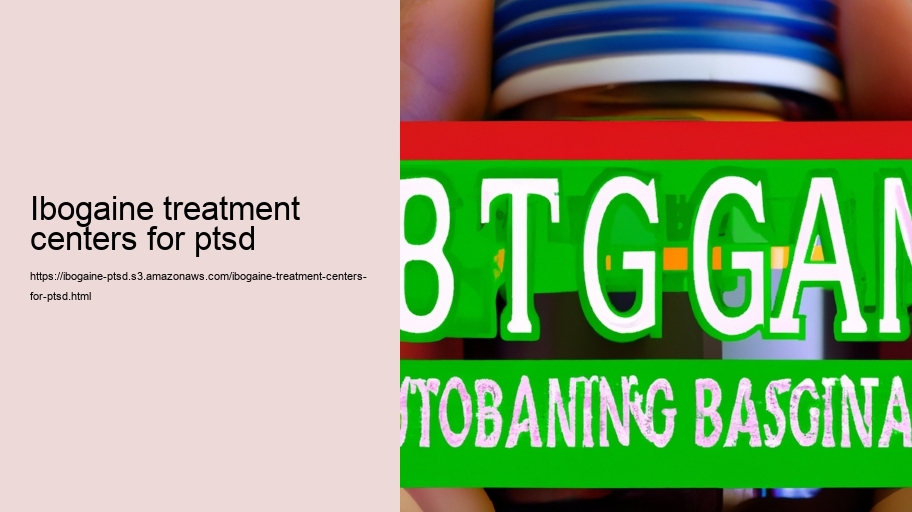Ibogaine Treatment Centers for PTSD: A Glimpse into an Alternative Healing Path
The journey through the labyrinth of post-traumatic stress disorder (PTSD) is often fraught with despair and hopelessness, as conventional treatments sometimes fall short in providing relief. In a world where mental health issues are increasingly prevalent, innovative approaches to healing are not just welcome; they are essential. One such approach that has been gaining attention for its potential to treat PTSD is ibogaine therapy, administered at specialized treatment centers around the globe.
Ibogaine is a naturally occurring psychoactive substance found in the root bark of the African shrub Tabernanthe iboga. Traditionally used in spiritual ceremonies by indigenous peoples in West Africa, ibogaine has made its way into Western alternative medicine due to its purported ability to alleviate various forms of addiction and psychological distress.
At the heart of this essay lies a discussion centered on ibogaine treatment centers and their role in helping individuals grappling with PTSD—a condition characterized by intrusive memories, heightened anxiety, mood disturbances, and other debilitating symptoms following exposure to traumatic events.
Why Ibogaine?
The unique appeal of ibogaine lies in its capacity to affect change at both biochemical and psychological levels. Proponents suggest that ibogaine can reset neurotransmitter pathways related to addictive behaviors and mood regulation. This resetting process might explain why many patients report significant reductions in cravings for substances or compulsive behaviors after undergoing treatment.
However, it's not just addiction circuits that ibogain affects—its therapeutic scope extends further. Those who have undergone ibogaine therapy for PTSD recount profound experiences of introspection and emotional release during their sessions, which can last anywhere from 24 to 36 hours. During this time, patients may revisit traumatic memories in a manner that allows them to process these experiences without being overwhelmed by fear or pain.
The Setting: Ibogaine Treatment Centers
Given the intense nature of ibogain-induced experiences, proper setting and professional support are crucial components of successful therapy. Ibogaine treatment centers strive to provide a safe environment where medical oversight is readily available throughout the duration of treatment.
These centers typically offer comprehensive care plans that include pre-treatment assessment, administration of iboga or its derivative compounds under close monitoring by healthcare professionals, and post-treatment integration therapy aimed at facilitating long-term well-being.
It's worth noting that while there is anecdotal evidence supporting the efficacy of iboga treatments for PTSD—and despite promising preclinical research—the use of this substance remains controversial due mainly to its legal status (it’s classified as a Schedule I drug in the United States), lack of FDA approval for any clinical indications, including PTSD treatment, and limited large-scale studies validating its safety and effectiveness.
Patient Experiences
Despite these regulatory hurdles, personal accounts from those who have sought out this form of alternative therapy paint pictures filled with transformational narratives. Individuals often describe emerging from their encounters with newfound clarity regarding past traumas; some even claim near-immediate alleviation from symptoms associated with PTSD.
Of course, these stories should be approached cautiously since every individual's reaction to psychoactive substances like iboga can vary widely based on numerous factors—including psychological history and physical health—and not everyone achieves positive outcomes.
Ethical Considerations
As with any experimental procedure involving potent psychoactive agents like iboga-derived therapies for conditions like PTSD—especially outside conventional healthcare settings—ethical considerations come into play. Legitimate concerns revolve around informed consent processes ensuring participants understand potential risks associated with off-label uses or unregulated environments lacking peer-reviewed scientific backing affirming both efficacy and safety protocols adhered within such facilities must be scrutinized rigorously.
Additionally—given complex implications surrounding cultural appropriation—it’s important institutions involved respect traditional contexts wherein sacred plants like Tabernanthe iboga originate without commodifying indigenous wisdom purely profit motives detached meaningful spiritual or communal dimensions integral usage historical backdrop whence it came thus raising questions about responsible stewardship knowledge exchange contemporary medicinal applications thereof.
Looking Forward
In conclusion—while intriguing—to date empirical data confirming long-term benefits stemming from treating PTSD via methods deployed within ‘ibogain’ clinics remains scanty necessitating cautious optimism until more robust findings emerge following rigorous trials assessing validity said interventions vis-à-vis standard-care modalities presently established within psychiatric practice today nonetheless possibility exists whereby future could see broader acceptance incorporation novel therapeutics landscape once deemed fringe now potentially spearheading vanguard holistic mental healthcare revolution era desperately seeking alternatives current paradigms oftentimes prove ineffective leaving many sufferers search respite wherever they may find it—even if means venturing beyond familiar horizons hitherto known unknown realms healing promise yet untold possibilities awaiting discovery therein.
